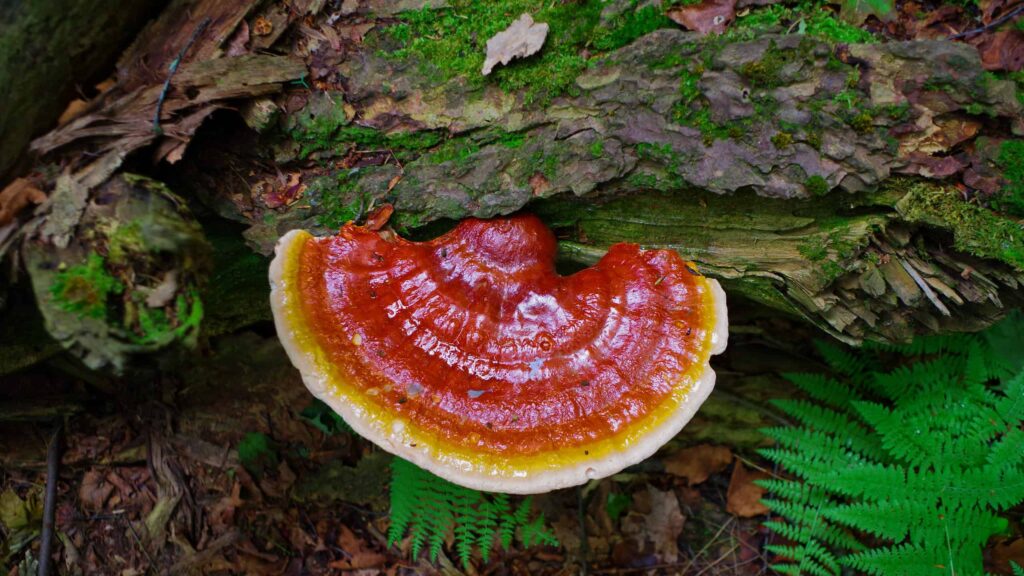introduction
Reishi, scientifically known as Ganoderma lucidum, is a highly revered mushroom in traditional Chinese medicine and is often referred to as the “Mushroom of Immortality” or the “King of Herbs.” Reishi mushrooms have been used for centuries for their potential health benefits and are gaining recognition in modern times as functional mushrooms. In this comprehensive guide, we will delve into the various advantages of Reishi functional mushrooms, their mechanisms of action, recommended usage, and the potential impact on health and well-being.
Understanding Reishi Functional Mushrooms
Reishi mushrooms are distinctive for their reddish-brown, kidney-shaped cap and their woody texture. They are native to Asia and have a long history of use in traditional Chinese medicine, where they are considered to be a powerful adaptogen and immune system booster. In the world of functional mushrooms, Reishi stands out for its potential to support various aspects of health, including immunity, stress management, and overall well-being.
Benefits of Reishi Functional Mushrooms
Immune System Support
Reishi mushrooms are renowned for their immune-enhancing properties. They contain bioactive compounds such as beta-glucans and polysaccharides that can stimulate the activity of immune cells, helping the body defend against infections and diseases. Regular consumption of Reishi may promote a robust and responsive immune system.
Stress Reduction and Adaptogenic Properties
Reishi is considered an adaptogen, a category of herbs and mushrooms known for their ability to help the body adapt to stress and maintain balance. By reducing the negative effects of chronic stress, Reishi can promote mental well-being and cognitive function. It is often used to combat symptoms of anxiety and depression.
Antioxidant and Anti-Inflammatory Effects
Reishi mushrooms are rich in antioxidants, such as triterpenoids and ganoderic acids, which help neutralize harmful free radicals in the body. These antioxidant properties contribute to reducing inflammation, which is associated with various health conditions, including cognitive decline.
Improved Sleep and Relaxation
Reishi has a reputation for promoting relaxation and improving sleep quality. Its calming effects can help individuals manage stress, reduce anxiety, and achieve a more restful sleep, all of which are essential for cognitive well-being.
Respiratory Health
In traditional Chinese medicine, Reishi has been used to support respiratory health. It is believed to relax bronchial muscles, making it easier to breathe. Reishi can be beneficial for individuals with respiratory conditions such as asthma.
Liver Health and Detoxification
The liver is a vital organ for overall health, including cognitive function. Reishi is traditionally used to support liver health and promote detoxification. By enhancing the liver’s ability to remove toxins, it contributes to overall well-being.
Heart Health
Reishi mushrooms are being studied for their potential to support cardiovascular health. They may help lower blood pressure, reduce cholesterol levels, and support healthy blood circulation, all of which contribute to cognitive well-being.
Cognitive Function and Memory
Some research suggests that Reishi may have a positive impact on cognitive function and memory. While more studies are needed, the mushroom’s antioxidant and anti-inflammatory properties may help protect brain cells and support cognitive health.
Mechanisms of Action
The mechanisms of action behind the benefits of Reishi functional mushrooms are diverse and involve interactions with various bodily systems and biochemical processes. Key mechanisms include:
- Immune Modulation: Reishi mushrooms contain beta-glucans and polysaccharides that stimulate immune system activity, enhancing the body’s ability to combat infections and diseases.
- Adaptogenic Properties: Reishi’s adaptogenic effects help the body cope with stress and maintain balance, reducing the negative effects of chronic stress and promoting mental well-being.
- Antioxidant and Anti-Inflammatory Effects: Reishi’s rich content of antioxidants and triterpenoids helps neutralize free radicals and reduce inflammation, supporting overall health and cognitive function.
- Respiratory Support: Reishi’s potential to relax bronchial muscles makes it beneficial for respiratory health and easier breathing.
Recommended Usage
The recommended usage of Reishi functional mushrooms can vary based on individual factors, including age, weight, and specific health goals. A common dosage range is typically between 500 to 2,000 milligrams of Reishi extract or 3 to 5 grams of dried Reishi mushrooms per day. It’s important to start with a lower dose and gradually increase it to assess tolerance and effects.
As with any dietary supplement, it’s advisable to consult with a healthcare professional or a knowledgeable herbalist before starting any regimen. They can provide personalized guidance based on your specific needs and circumstances.
Potential Side Effects and Considerations
Reishi functional mushrooms are generally considered safe when used within recommended dosages. However, some individuals may experience side effects, which can include gastrointestinal discomfort, such as stomach upset or diarrhea. These side effects are typically mild and transient.
Reishi may interact with certain medications or health conditions. Individuals taking blood-thinning medications or those preparing for surgery should exercise caution and consult with a healthcare professional before using Reishi functional mushrooms.
Additionally, pregnant and breastfeeding individuals should seek guidance from a healthcare provider before using Reishi.
Conclusion
Reishi functional mushrooms offer a wide range of potential health benefits, with a strong emphasis on immune support, stress reduction, antioxidant effects, and overall well-being. Whether you’re looking to enhance your immune system, manage stress, improve sleep quality, or support cognitive health, Reishi holds promise as a versatile and health-promoting supplement.
Understanding the potential benefits, mechanisms of action, recommended usage, and potential side effects of Reishi is essential for making informed decisions about its use. By seeking guidance from healthcare professionals or herbal experts, you can maximize the advantages of Reishi functional mushrooms and work towards better cognitive well-being and overall health.
- The Comprehensive Guide to the Benefits of Reishi Functional Mushrooms - November 1, 2023
- The Comprehensive Guide to the Benefits of Vitamin K2 - November 1, 2023
- The Comprehensive Guide to the Benefits of Mullein Flower Supplements - July 12, 2023

